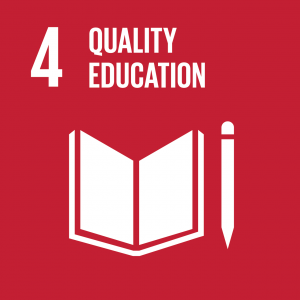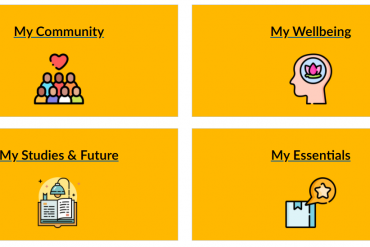For many of us, our higher education journeys led to a marked change in our life, hugely increasing our aspirations and career expectations leading to higher standards of living and allowing us to have much greater impact on society than those available to our parents. Whilst gaining the degree was important, the transformative elements gained through our educational experiences extended to the friends we made, the networks we developed and the experience of contributing to the creation of new ideas and knowledge. As we slowly bump out of the pandemic and help our diverse students reconnect with their learning, amidst the global calamities of climate disasters and war, it is important to reflect on our values and educational mission: what is transformational education, how can we ensure that our students experience this irrespective of their background and what elements of this education might be unique at Sydney?
Where can we acknowledge the dramatic change in technology that now impact not just on learning and teaching but on our lives? The UNESCO futures paper calls it “social and economic disruptions caused by technology”.
What is transformational education?
Building on the UNESCO definition, transformational education at Sydney improves the lives of the communities that we serve through bringing about fundamental, positive change to:
- The lives of each student, including the quality and range of possible career and life choices open to them, their networks, their ability to lead positive change, and enhanced aspirations, health outcomes and mental wellbeing.
- Society through graduates who have developed qualities to tackle the key environmental, political, health, education, economic and other challenges of the 21st century and to improve quality of life, through creative, effective, collaborative, and ethical leadership.
- Knowledge through the co-creation of new understanding, complex problem solving and ways of thinking that value expertise and empathy.
How does this relate to our values?
Through our Vision and Values statement, the University of Sydney is committed to education for public good which improves the world around us. To achieve this impact, the University supports all students to realise their full potential and never limits people’s pursuit of excellence on the basis of their individual background or circumstances.
Research shows us students experience their journeys to and through university in different ways. We want our new students to develop a sense of belonging to the University. We want all of our students to succeed in, enjoy and be stretched by their studies. Importantly we want our graduates to leave the university with a different view of the world and themselves, to be empowered through their transformative education experience to both defend expertise and challenge the status quo.
How does this relate to our educational philosophy and principles?
Our shared educational philosophy commits us to creating learning experiences which ensure each student learns “in a diverse, inclusive and intellectually exciting environment where knowledge and skills are constructed through collaborative and interactive inquiry” and “personalised and collaborative learning cycles of inquiry, feedback and assessment centred on authentic problem solving and tasks”. This stance tasks us with the success of each individual, from transition into the university onwards, and the development of students able to solve problems and generate knowledge for the common good.
How does this relate to the UN sustainability principles?

As noted above, a transformative education is inclusive and involves ensuring that each student, irrespective of background, reaches their personal potential and is motivated and prepared to be an effective and ethical global leader in a world with unprecedented climate, economic and political challenges. This is consistent with the UN Sustainable Development Goal 4 (SDG 4). Alongside a commitment to ensure access to higher education and the removal of achievement gaps captured in the targets in SDG 4, it commits us in Target 4.7 to:
By 2030, ensure that all learners acquire the knowledge and skills needed to promote sustainable development, including, among others, through education for sustainable development and sustainable lifestyles, human rights, gender equality, promotion of a culture of peace and nonviolence, global citizenship and appreciation of cultural diversity and of culture’s contribution to sustainable development
How does this relate to 21st century learning?
The 2021 Horizon report acknowledges the impact of the COVID pandemic on higher education noting the swift ‘pivot’ to online teaching. The need to adopt to new ways of learning and teaching was seen by some as an educational ‘transformation’. However, in effect the shift at scale to online teaching called attention to changes that had been occurring in the education landscape for a long tine. Prior to COVID, the University had already introduced the concept of online “anytime” learning through the OLE units. Academics had been using interactive, hybrid modes of teaching to work with cohorts of students located in rural regions. Opportunities to adopt 21st century technological affordances in purposefully-designed innovative learning environments have increased our capacity to teach more deliberately. While resourcing challenges remain, we have discovered how to adapt these more flexible ways of teaching and learning to suit our cohorts and address issues of equity, access and inclusion.
What are the consequences for our teaching?
Belonging and transition
Connectedness grows through a successful transition process, through a welcoming and supporting environment, social engagement and most strongly through active engagement of each student with their teachers and peers in the classroom. This requires purposefully building inclusive environments, social learning activities and a like-minded community of learners.
Teaching and assessment approaches
For all of our students to succeed, enjoy and be stretched by their studies, our teaching and assessment should reflect the well-understood features of effective education. There is a large volume of empirical data and studies across all disciplines which demonstrate that active learning approaches and meaningful assessment raise achievement levels for all students and reduce achievement gaps for students from underrepresented groups.
Inclusive classes
To ensure that all students can access relationship-rich educational environments, feel a sense of belonging and purpose, our teaching should be culturally responsive. Our physical and virtual learning environments, student life and our campus must be truly inclusive, accessible and must support of the needs of all students and staff.






2 Comments